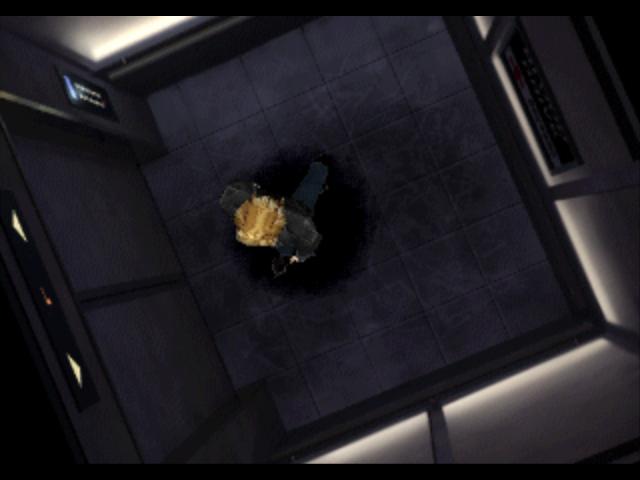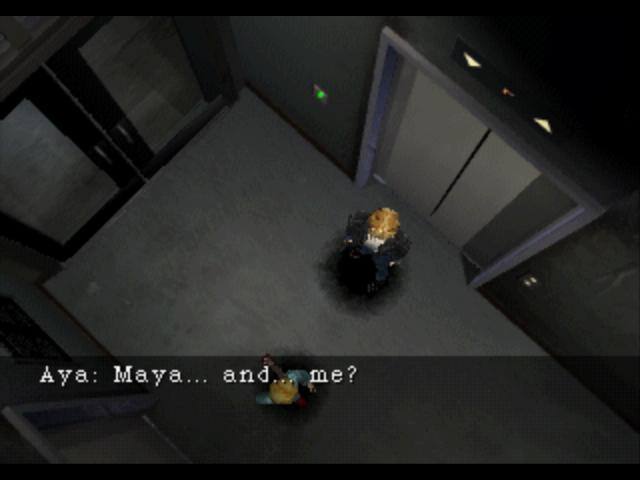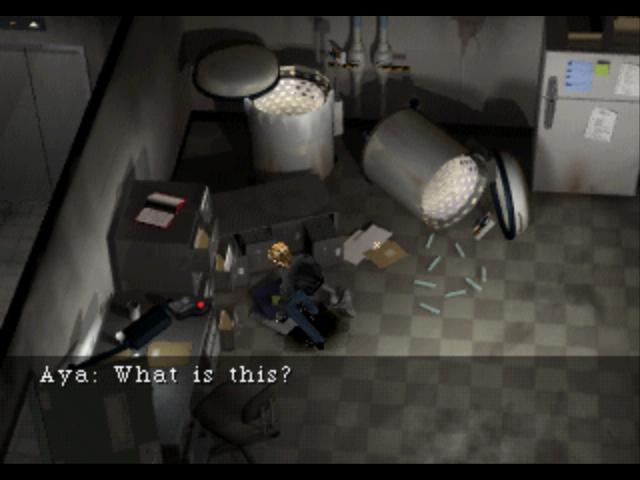

There's very few attempts to startle or outright scare the player here. Really though, it's no more-or-less silly on paper than Resident Evil's T Virus, but what I enjoy about Parasite Eve is the manner in which the consequences of the virus are portrayed, and the decisions they made in how they were going to be "a horror game." Suffice it to say that Aya's shady past naturally leads her to discover a connection between herself and Eve, and it involves mitochondria mutating animals into monsters through rapid evolution. It still has a lot of brutally stilted dialogue, and some frankly nonsensical pseudoscience BS that even the most fakey episode of Doctor Who would find absurd. I will confess right now that the plot is only marginally better than that of Resident Evil. You soon find out that the actress' body has been taken over by a malicious microorganism (or organisms) called Eve, and Eve will be the antagonist for the remainder of the game. Uncomfortably sandwiched and generally forgotten between these two types of horror and these two franchises, is the game I want to talk about today: Squaresoft's Parasite Eve. I contrast them with the true sense of dread that Silent Hill evokes through mood, setting, and atmosphere. Personally, I think the jump-scares and monster spawns of Resident Evil are merely startling. I mention them, and my dislike of Resident Evil, to illustrate a point: different things scare different people. I mention these two titans of the genre not, as I have so often said in my posts, to appear as a hipster as I turn instead to review a third game. Now, Silent Hill? The other, just-as-famous-if-not-more-famous horror franchise to emerge from the Playstation? SCARY. But most damning of all for me.it just isn't scary. The fixed camera angles are disruptive to the point of controller-hurling frustration. The voice acting is universally recognized as some of the worst in gaming history. It was, if you'll pardon the cliché, a game-changer.Īnd yet, if I'm being terribly honest, I hate this game.

It redefined a genre, and expanded the audience a thousandfold. That said though, the influence and sheer sales statistics of Resident Evil are impossible to ignore. Maybe it's a bit of an exaggeration to attribute much of the success of the Playstation to the horror games that were made for it. Oh, to be sure, you could find platformers, RPGs, racing games, shooters, and puzzle games on the N64 and the Sega 32X as well. What really gave Playstation its edge over the competition, though, was its flexibility in terms of genre. With well-known franchise hits like Final Fantasy VII, Castlevania's Symphony of the Night (a VASTLY superior game to Castlevania 64), and Dragon Quest VII, brought massive established fanbases with them. Industry heavyweights like Squaresoft, Konami and Capcom recognized the higher production costs of cartridges, as well as the storage capabilities offered by the new Compact Disc format.

For starters, the third party support for the system was tremendous. Yet despite this, the Playstation, Sony's upstart console, outsold both. The Nintendo 64 and the Sega 32X both included their processing speed in their names.

In the mid-late 90s, console gaming had resorted to the basest of name-calling: who has the most bits? With the 16-bit era coming to a close, consoles raced to see who would have the best processor, and this became such a major marketing point that it was included in the console names. I think it's fair to say that the Playstation, in the 5th Generation Console Matchup, was the undisputed conqueror of the marketplace.


 0 kommentar(er)
0 kommentar(er)
